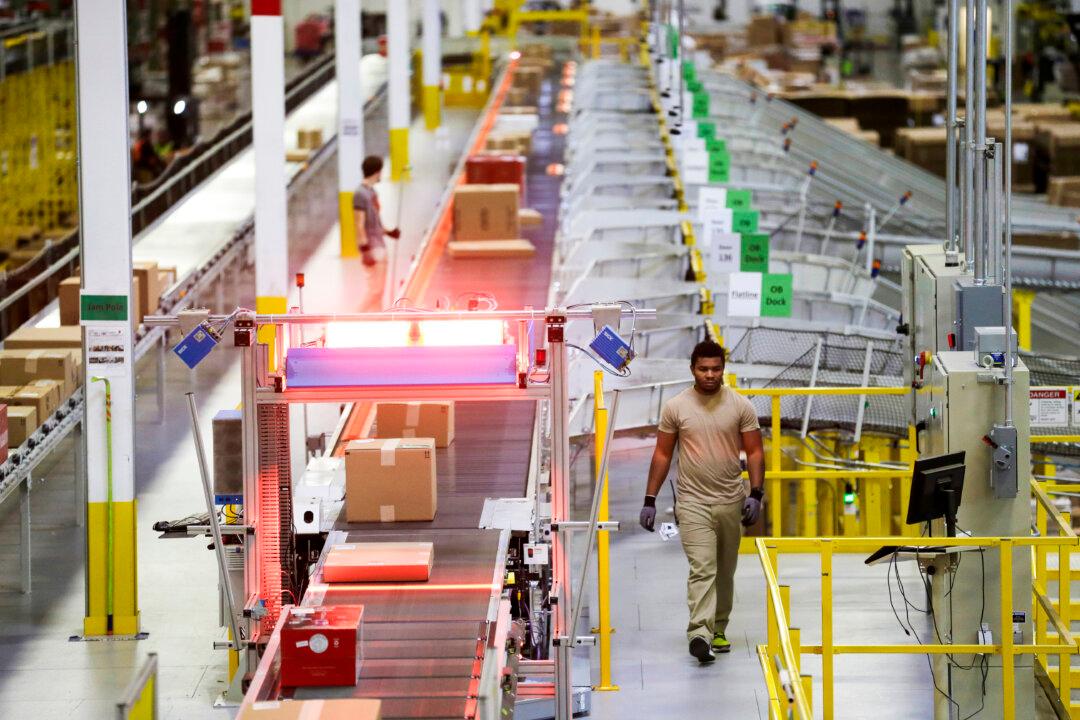Amazon announced Thursday that it is saying goodbye to plastic pillow filling in its packaging as it transitions to recycled paper as part of its ongoing efforts to be more environmentally friendly.
The company said it has already replaced 95 percent of the plastic air pillows in its delivery packaging at fulfillment centers in North America and aims to completely remove them by the end of the year.





